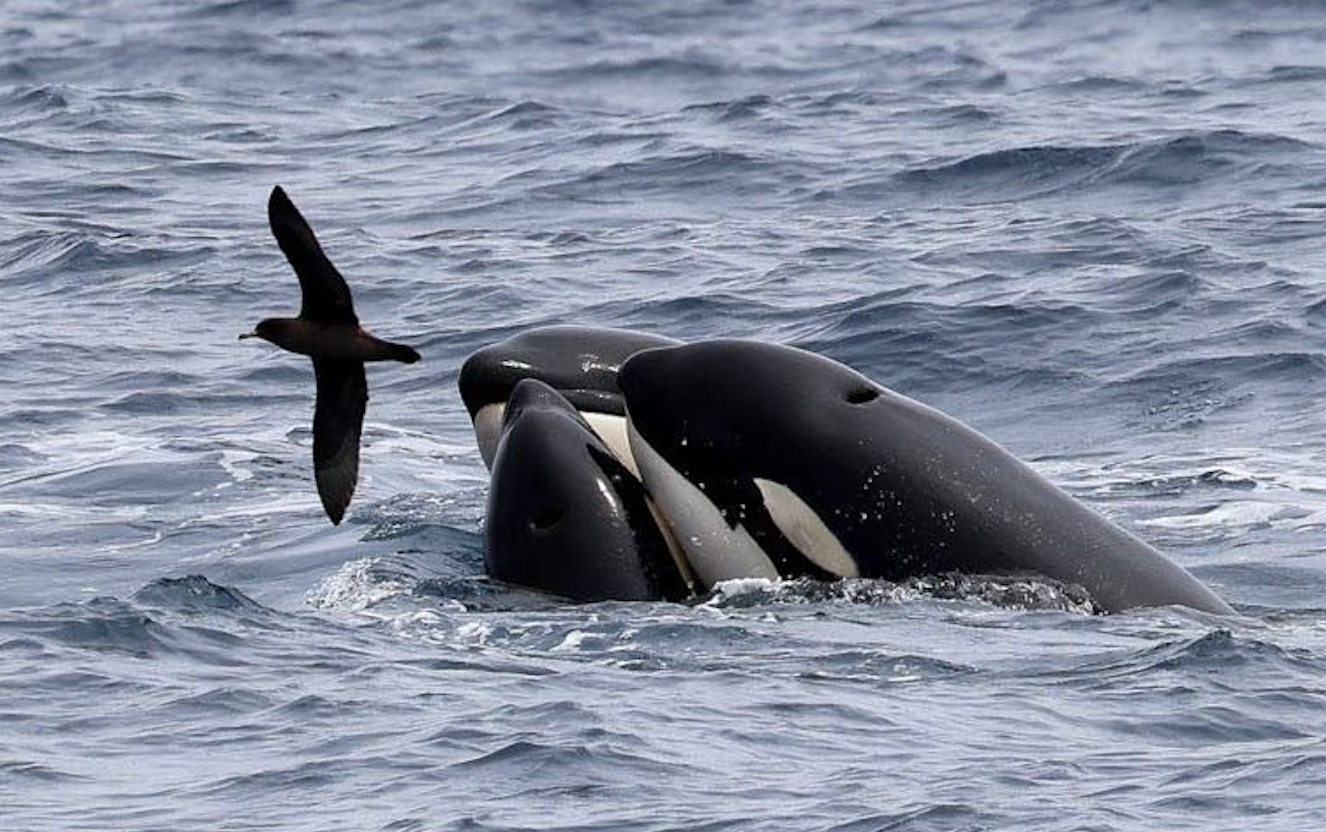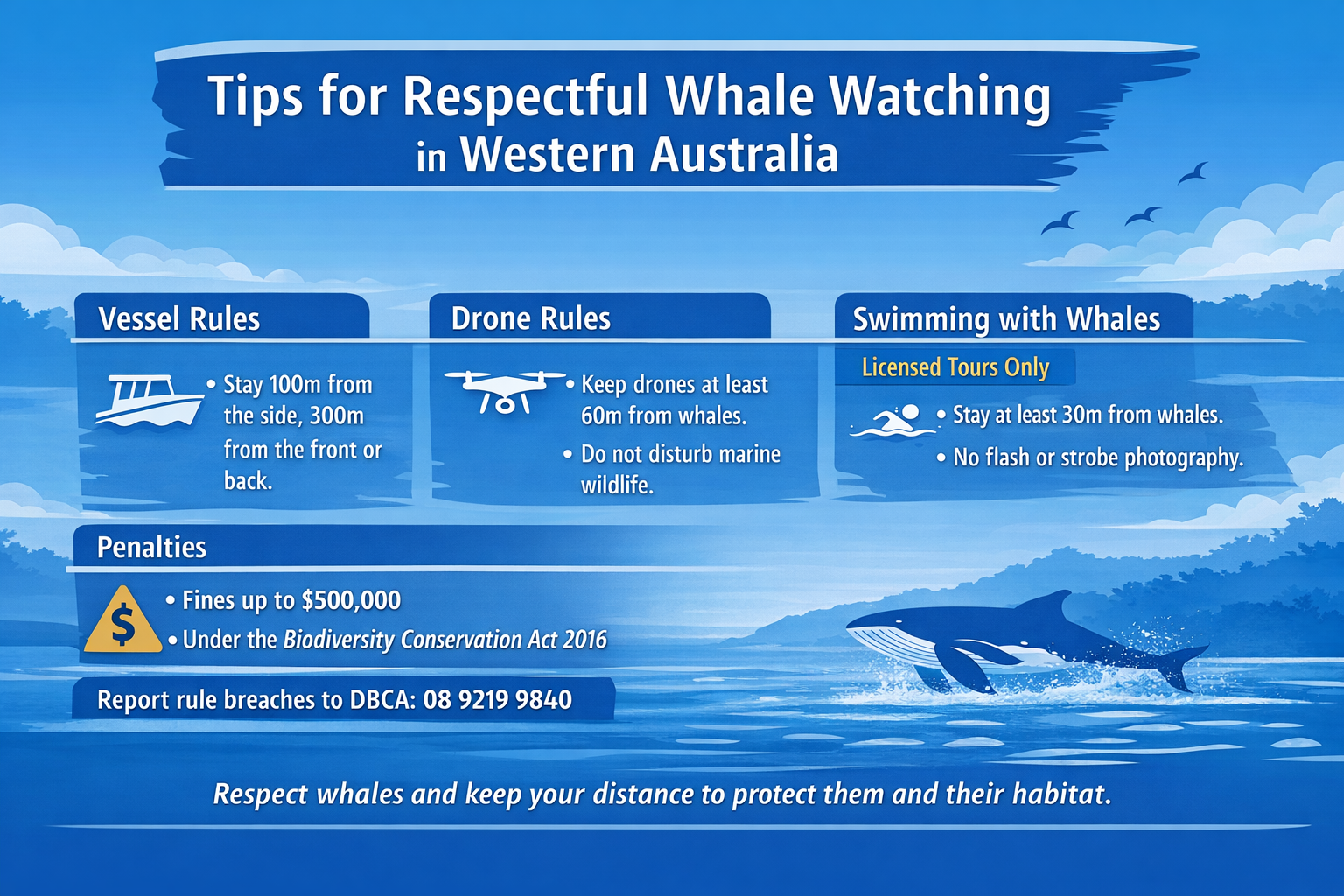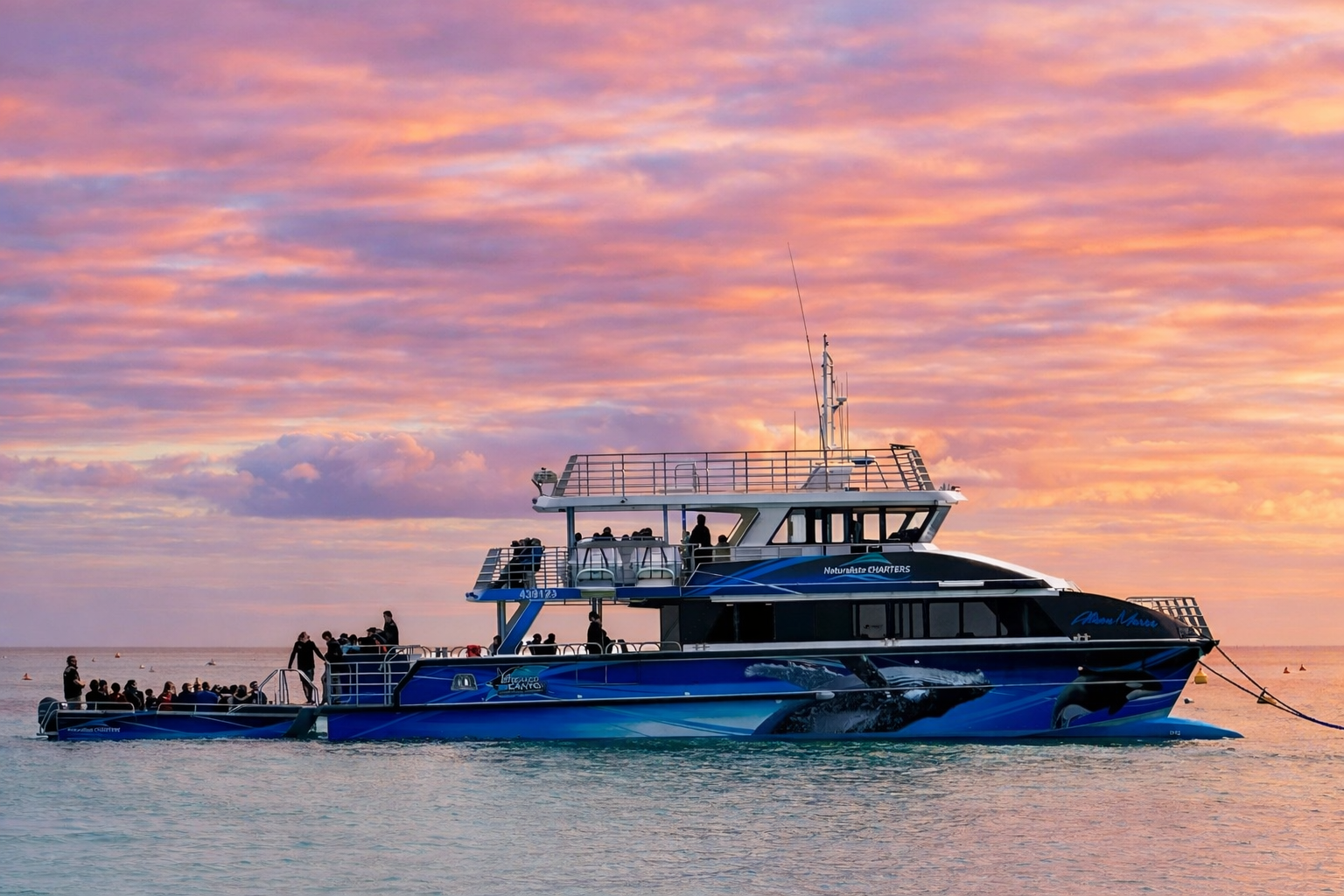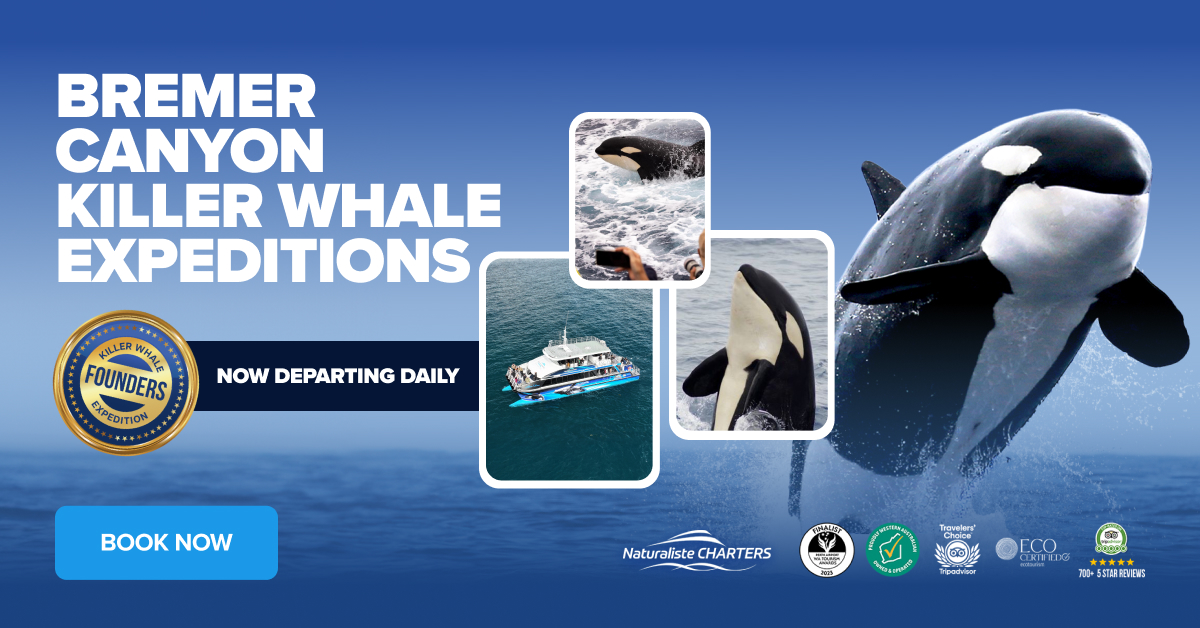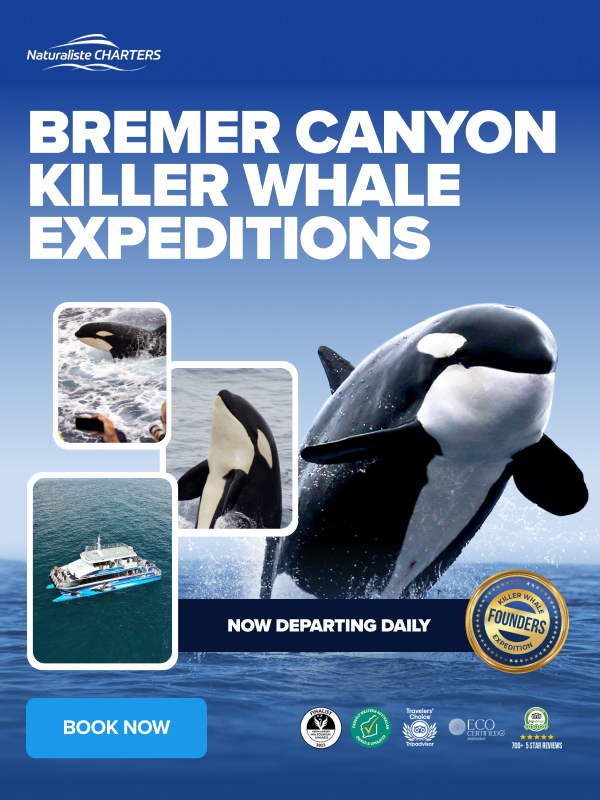The Remarkable Story of the Southern Right Whale
The Southern Right whale faced near extinction during the peak of global whaling. Once numbering over 150,000, their population plummeted to as low as 300 individuals worldwide. Whaling began as early as the 11th century and continued until 1978 in Western Australia, when the Albany Whaling Station finally closed, and whales received protection in Australian waters.
Why Were They Called Southern Right Whales?
Sadly, these whales were considered the “right” whale to hunt. They often approached vessels out of curiosity, floated after death, and provided huge amounts of oil. At 20 metres long and weighing up to 90 tonnes, they offered maximum yield for minimal effort. Tragically, their slow reproductive cycle — just one calf every 3-4 years — made recovery slow and difficult. Today, southern right whales remain endangered under the IUCN.
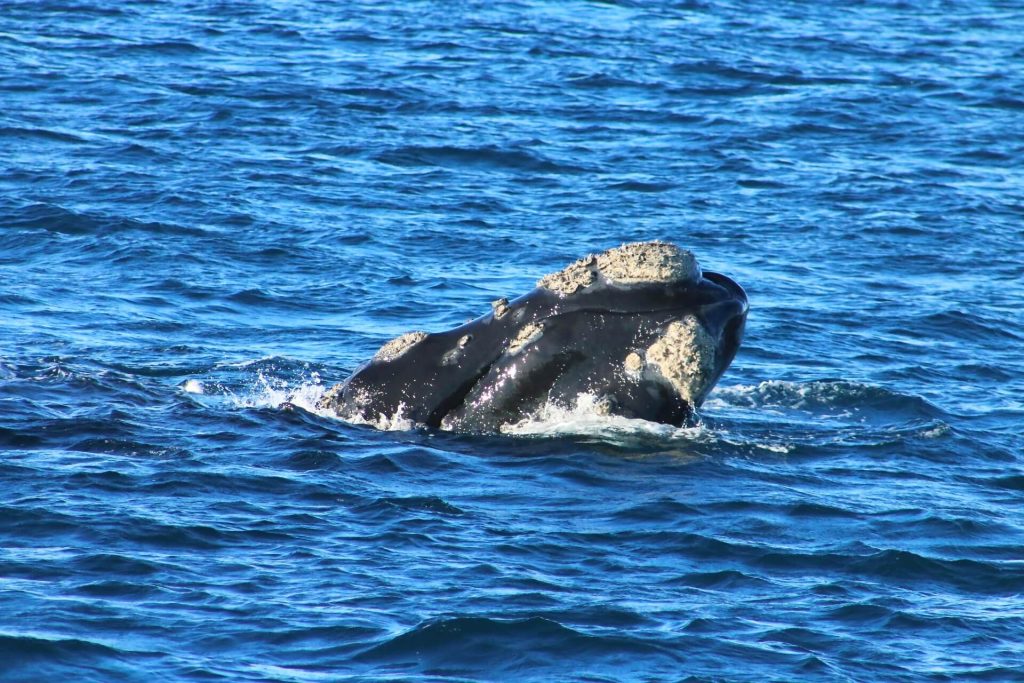
The Feeding Habits and Migration of the Southern Right Whale
The southern right whale is a skim-feeding baleen whale, using keratin plates to filter tiny krill from enormous mouthfuls of water. In Antarctic waters, they consume up to 3 tonnes of krill per day during their feeding season.
As the austral winter approaches, southern right whales migrate north into Australian waters. They head for calm, shallow bays like Augusta and Dunsborough — ideal places to breed, give birth, and nurse their young. These coastal areas provide protection for newborn calves, which can weigh up to one tonne at birth.
While in Australia, southern right whales fast, surviving off stored blubber and often losing 20-30% of their body weight. Females need these fat reserves to produce up to 300 litres of nutrient-rich milk each day for their calves.
Southern Right Whale Encounters in Augusta and Dunsborough
Naturaliste Charters is fortunate to encounter the right whales frequently across both our whale watching locations — Augusta (May to August) and Dunsborough (September to November). These incredible animals often remain in the area for weeks or months, allowing us to witness calves grow from 3 metres to as long as 7-8 metres before their first migration south to Antarctic waters.
Newborn southern right whale calves are energetic and playful. It’s not uncommon to see them rolling, tail-slapping, or flopping clumsily beside their resting mothers — much to the delight of everyone onboard.
As calves grow stronger, mothers guide them into deeper waters, helping them build muscle and prepare for their long journey home. Occasionally, lucky whale watchers might even witness these mothers teaching their calves to breach — launching their huge bodies from the water with astonishing power.
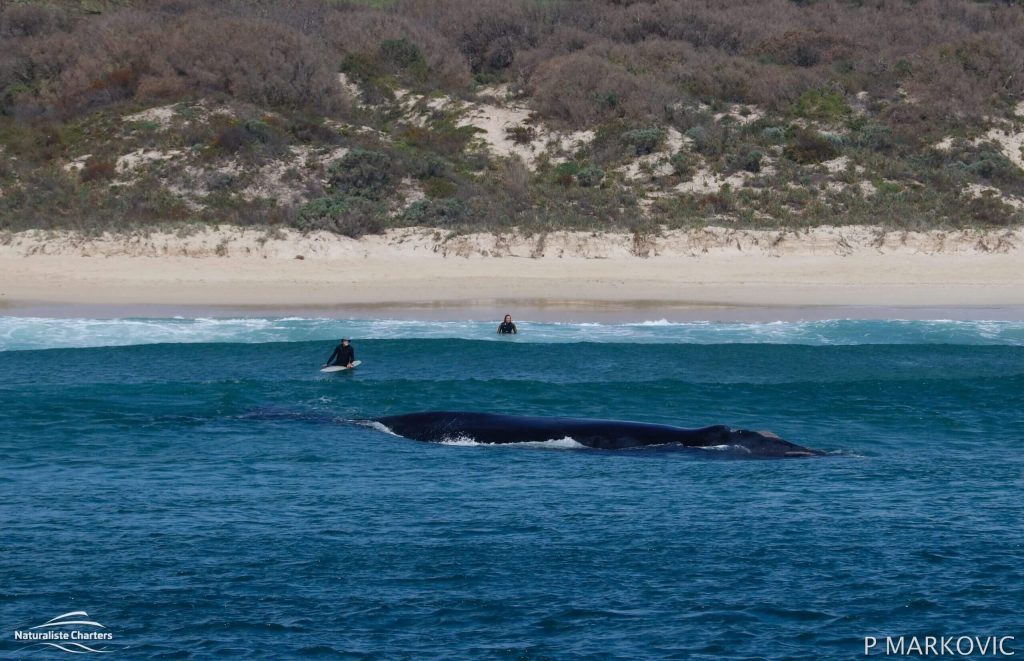
How to Identify a Southern Right Whale
These whales are easily recognised thanks to two unique features. They lack a dorsal fin — because they are slow swimmers — and have distinctive callosities (rough, keratinised patches) on their heads. These callosities are unique to each whale, like a fingerprint.
Another behaviour typical of the southern right whale is “logging.” These whales often float motionless at the surface to rest, sometimes mistaken for rocks by unaware observers.
A Surprising Southern Right Whale Record
Although southern right whales are only half the weight of a blue whale, they do hold an extraordinary record — they have the largest testicles of any animal on Earth. Each weighs approximately 500 kilograms. Just another incredible fact about this fascinating and resilient species.

